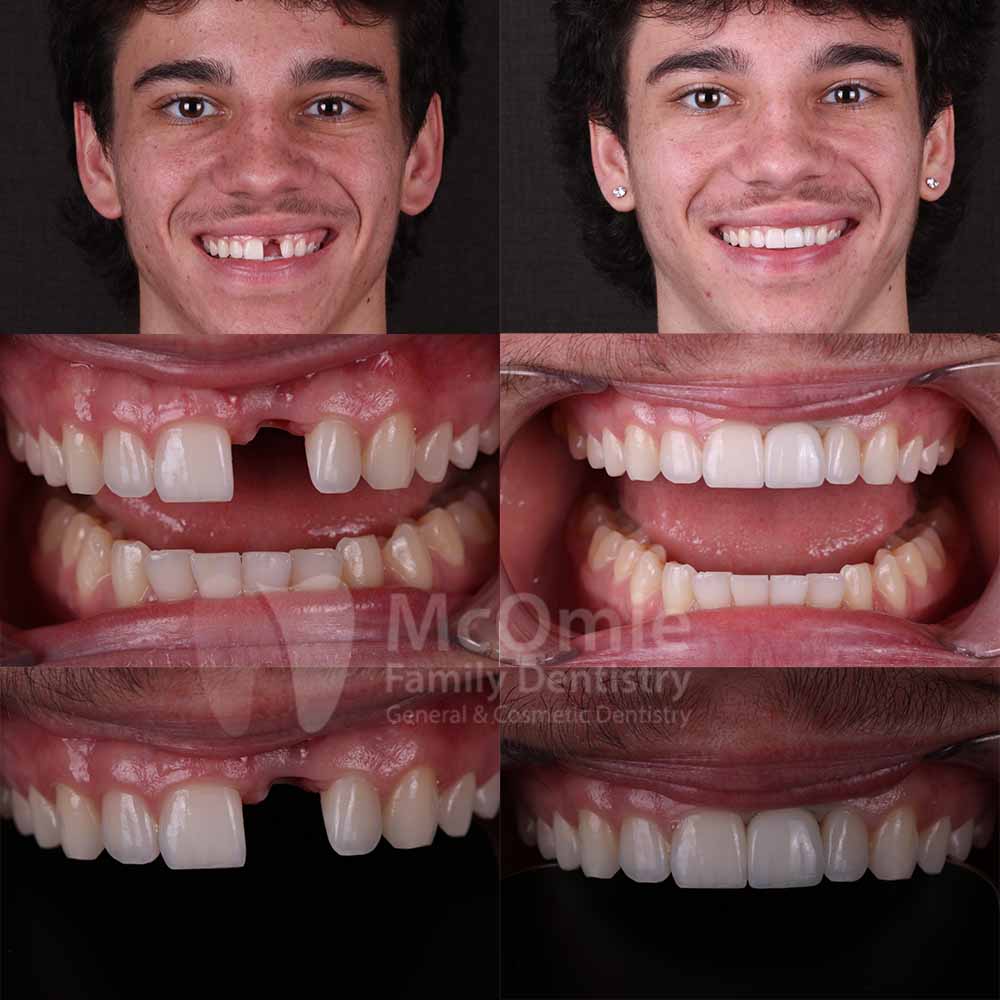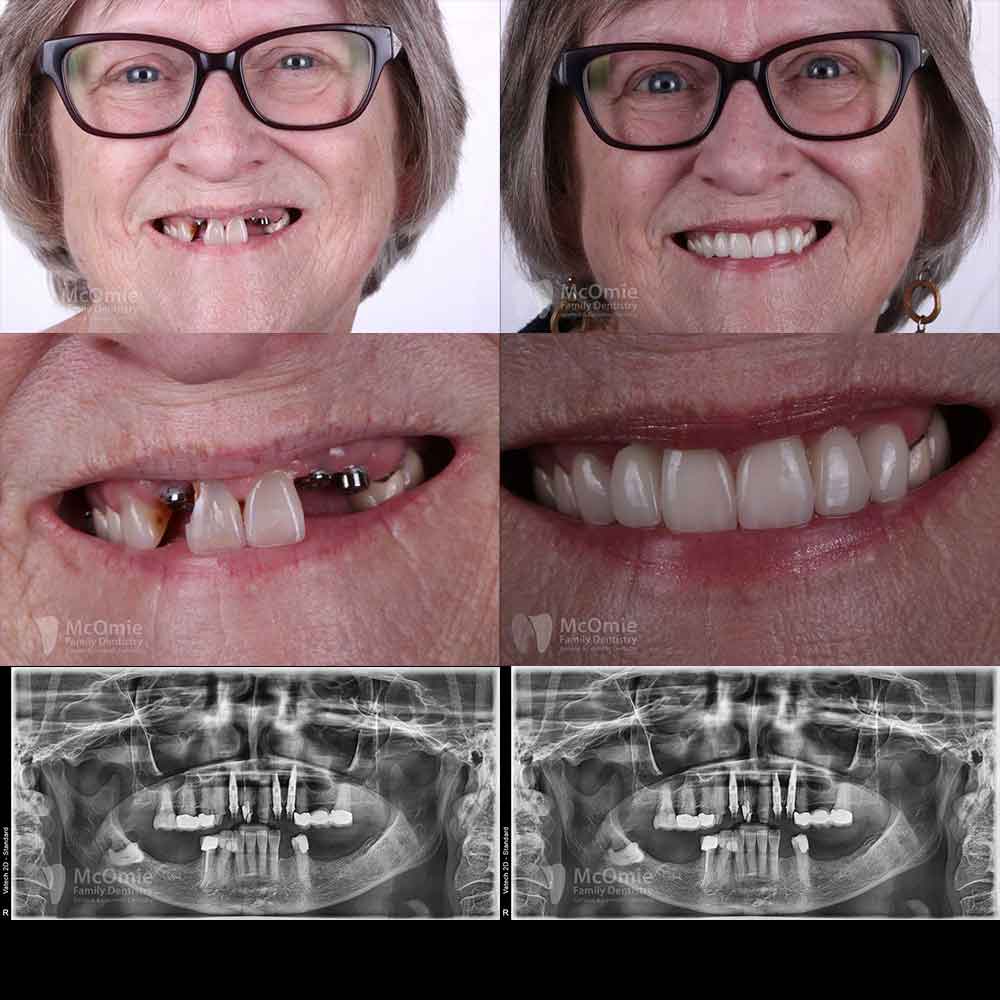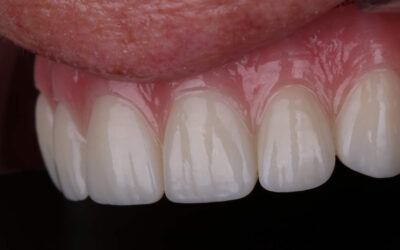Recently, I had a patient who was eager to replace her missing tooth with a dental implant. However, after a thorough evaluation, we discovered that she had significant bone loss and an underlying health condition that could complicate the implant process. Together, we decided on a different approach that better suited her needs and long-term health. This experience reminded me of how important it is to carefully consider whether implants are the right choice for each individual.
As a restorative dentist, I’ve seen firsthand how transformative dental implants can be. They offer a reliable, long-term solution for missing teeth; for many, they’re the perfect choice. However, dental implants are not a one-size-fits-all solution. It’s crucial to recognize when implants might not be the best option for you, and I want to share some insights to help you make an informed decision.
Understanding Dental Implants
Before discussing why you might reconsider getting dental implants, let’s briefly touch on what implants are. Dental implants are artificial tooth roots made from biocompatible materials like titanium, which are surgically placed into your jawbone. Once the implant integrates with your bone, a crown, bridge, or denture is attached to restore your smile and function.
While the success rate of dental implants is high, their success depends heavily on various factors, including your overall health, bone density, lifestyle, and your dentist’s expertise. Choosing a skilled and experienced dentist is crucial for ensuring a successful outcome, as the placement and precision of the implant directly affect its long-term stability and your overall satisfaction.

Health Conditions That Might Prevent You from Being a Good Candidate
Gum Disease
One of the most critical factors for implant success is the health of your gums. If you have untreated periodontal disease, it can compromise the stability of the implant. Gum disease leads to bone loss, and the implant cannot properly integrate without adequate bone. For this reason, it’s essential to address any gum issues before considering implants.
Bone Density
Dental implants rely heavily on your jawbone to anchor them securely. When you lose a tooth, the jawbone underneath it deteriorates over time due to lack of stimulation. This bone loss can leave the jawbone insufficient to support an implant. For patients with inadequate bone density, this presents a significant challenge. Without enough bone, the implant may not integrate properly with the jaw, leading to instability and, ultimately, implant failure.
But don’t lose hope if you’re facing this issue. We can often address it with a procedure called bone grafting, which builds up the deficient areas of your jaw. This involves adding bone—from another part of your body, a donor, or synthetic materials—to create a stronger foundation for the implant. While this greatly enhances the chances of long-term success, it’s important to remember that bone grafting is an additional surgical step that requires thoughtful consideration.
The grafted bone needs time to heal and integrate with your natural bone before placing an implant. This healing period can take several months, extending the overall treatment timeline. Additionally, bone grafting carries its own risks, such as infection, graft rejection, or inadequate integration with the existing bone.
At McOmie Family Dentistry, we thoroughly evaluate your bone density using advanced imaging techniques like 3D scans to determine if bone grafting is necessary. If you’re found to have insufficient bone density, we’ll discuss the bone grafting procedure in detail, including the benefits, risks, and expected timeline, ensuring you have all the information needed to make an informed decision.
Bisphosphonates and Dental Implants
Bisphosphonates, commonly prescribed for osteoporosis and certain cancer treatments, play a crucial role in maintaining bone density by inhibiting bone resorption. However, their use can complicate dental implant procedures. Patients on bisphosphonates are at risk for a condition known as bisphosphonate-related osteonecrosis of the jaw (BRONJ). This serious complication occurs when the jawbone fails to heal properly after surgery, leading to necrosis (bone death).
The risk of BRONJ is especially heightened during invasive dental procedures like extractions or implant placements. BRONJ is more common in patients receiving intravenous bisphosphonates (up to 14.8% risk after extractions) compared to those on oral bisphosphonates (approximately 0.5% risk). The jawbone, particularly in areas with high bone turnover like the alveolar region, is more susceptible to this condition due to the stresses and strains during activities like chewing and speaking.
For patients on bisphosphonates considering dental implants, it is crucial to have a comprehensive evaluation. This includes a detailed medical history review and assessing the potential risk of BRONJ. In some cases, a drug holiday, where bisphosphonate treatment is temporarily paused before and after surgery, might be considered, although its effectiveness in reducing BRONJ risk remains debated.
At McOmie Family Dentistry, we take every precaution to minimize risks and ensure the best possible outcome for our patients. If you are on bisphosphonates and considering dental implants, it’s essential to discuss your options with us to make an informed decision that prioritizes your long-term oral and overall health.
Chronic Health Issues
Diabetes
- Diabetes, especially if not well-controlled, can slow the healing process, which is crucial for implant success. Diabetic patients also have a higher risk of infection, which can lead to implant failure. Additionally, diabetes can affect bone density over time, making it harder for the implant to stay secure.
Autoimmune Disorders
- Autoimmune disorders, such as lupus or rheumatoid arthritis, can cause your immune system to attack healthy tissues, including those around a dental implant. This can result in inflammation and complications during the healing process. Furthermore, the medications often used to treat these conditions, such as corticosteroids, can impair healing and increase the risk of infection, making it more challenging to achieve successful implant outcomes.
Osteoporosis
- Osteoporosis weakens bones, making them more prone to fractures and less capable of supporting an implant. This condition can complicate the implant process, and in some cases, patients may require bone grafting to strengthen the jawbone. However, medications for osteoporosis, such as bisphosphonates, can also interfere with bone healing, presenting another layer of complexity.
Heart Disease and Blood Pressure Disorders
- Patients with heart disease or high blood pressure face increased risks during the surgical placement of implants. The stress of surgery can exacerbate these conditions, and medications like blood thinners can complicate the healing process by affecting bleeding during and after surgery.
Other Chronic Illnesses
- Chronic kidney disease can affect your body’s ability to filter waste and maintain healthy bones, while gastrointestinal disorders like Crohn’s disease or ulcerative colitis can lead to nutrient deficiencies that impair bone health. Cancer treatments, particularly chemotherapy and radiation, can also damage bone tissue and reduce healing capacity, making implants a less viable option.
Lifestyle Factors That Could Affect Implant Success
Smoking
Smoking is a significant risk factor for implant failure. It impairs blood flow to the gums, slows healing, and increases the likelihood of infection. For these reasons, I strongly advise patients who smoke to consider quitting before undergoing implant surgery.
Oral Hygiene
Dental implants require a strong commitment to oral hygiene. Failing to maintain excellent oral care can lead to peri-implantitis, an infection that can cause bone loss around the implant and ultimately lead to its failure. Daily brushing, flossing, and regular dental check-ups are non-negotiable if you want to keep your implants healthy.
Bruxism (Teeth Grinding)
Patients who grind their teeth, a condition known as bruxism, can put excessive pressure on their implants, leading to potential failure. If you suffer from bruxism, we may need to explore ways to manage this condition before considering implants.
Financial Considerations
Cost of Implants
Dental implants are a significant investment, and for some patients, the cost can be a deterrent. While implants offer long-term value, they are typically more expensive upfront compared to other options like dentures or bridges. This higher cost reflects the quality of materials used, the skill required for precise placement, and the long-term benefits of a durable, natural-looking replacement.
If you’re curious about why dental implants are more expensive and whether they’re worth the investment, I encourage you to read our detailed post on the topic here.
Dental Implants Take Time
Lengthy Process
The timeline of getting dental implants isn’t quick. From the initial consultation to the final placement of the restoration, the entire process can take several months. This time frame includes healing periods after the implant surgery, during which the implant integrates with your bone (a process called osseointegration). Patients need to be prepared for this extended timeline and the patience required.
Age and Underlying Issues
Age Considerations
A frequent question is whether age limits someone from getting dental implants. There’s no upper age limit, and for seniors as long as you’re healthy with good bone density, implants can be a great option.
However, when approaching the later stages of life, we take a more ethical approach. For patients with limited time, the significant cost and lengthy process of implants may not be the best investment. In these cases, we discuss alternative treatments that may better suit their needs and circumstances.
For younger individuals, males under 25 and females under 21, we exercise caution. Since their bones are still growing, placing implants too early can lead to misalignment and complex corrections later on. In such instances, we often recommend waiting until growth is complete. In the meantime, we can explore temporary solutions like resin-bonded bridges or removable appliances to address missing teeth, ensuring the best long-term outcome.
Who is a Good Candidate for Dental Implants?


The ideal candidate for dental implants is someone who is in good overall health, has sufficient bone density, and is committed to maintaining excellent oral hygiene. If you fit this profile, implants could be a fantastic option for you. However, the only way to know for sure is to have a thorough consultation with a dentist who can assess your individual situation.
Steps Our Practice in Chattanooga Takes to See if You’re a Candidate
At McOmie Family Dentistry, we take great care in evaluating whether dental implants are the right choice for our patients. Here’s what you can expect during the process:
- Comprehensive Evaluation: We start with a full dental examination, including imaging like X-rays or 3D CBCT scans, to assess your bone structure and overall oral health.
- Medical History Review: We’ll review your medical history to identify any chronic health issues that could affect implant success.
- Personalized Treatment Plan: Based on our findings, we’ll develop a personalized treatment plan tailored to your needs. If implants aren’t the best option, we’ll discuss alternatives that may be more suitable.
- Patient Education: We believe in empowering our patients with knowledge. We’ll take the time to explain your options, the risks and benefits of each, and what you can expect during and after treatment.
Making the Right Choice for Your Smile and Health
Dental implants are a remarkable solution for many, but they aren’t for everyone. By understanding the potential risks and complications, you can make an informed decision about whether implants are right for you. If you’re considering dental implants, I encourage you to schedule a consultation with us at McOmie Family Dentistry. Together, we’ll explore your options and determine the best course of action for your unique situation.




